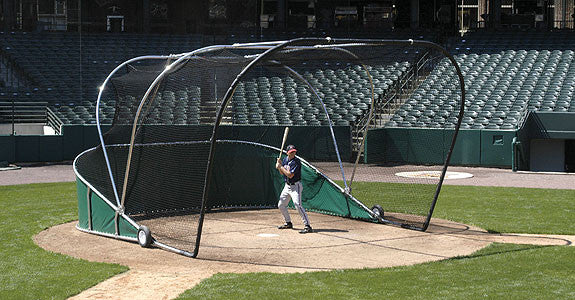We have this come up on a regular basis especially the seasons quit and teams have players leave and need to add to players or trying to establish a new team regardless if it's for a local league or travel ball. There are huge areas and questions to be answered but I would like to address one from the standpoint that I am the assessor and trying to establish what players have the ability, understanding, knowledge and be a player that I want to have on my team.
First and foremost during tryouts we want everybody to do the same thing catch the same flyball of a machine preferably so it's always the same, throw the ball from the same spot, normally from shortstop on a easy rolled ball by the coach so there's no fielding really involved just getting it picked up so I can see his arm and his accuracy. Then again using the machine have the ball hit to the player again at shortstop is normal seeing how he fields the ball-- hit the ball off of tea and time in contact to touching first base with a stopwatch to assess speed- and finally using a machine so easy strikes so that you can see the bat swing, mechanics of the swing, and how hard he hits it.
Now I realize I've used the word machine a lot of times and the reason we do that is because everything will be consistent but if you don't have a machine make sure you use the same person trying to replicate the same throw, , by the way I always thought don't use the bat you can't be consistent there, so that every player has an equal opportunity.
Then hear something that I look at that normally people don't give enough credit for I want to see how the kid reacts when he fails when he succeeds I'd like to know his attitude and reactions when he throws one over the first baseman's head or drops the flyball. Does he pout kicked the ground and carry-on orders and get back and say let's do it again by his actions not his words by his actions not his words. Then if you have a chance make sure your recruiting parents as well as players. these two are very difficult because they're not quantifiable they just have to be how you feel about the situation and what your instincts tell you but there worthwhile making notes of as well as the mathematical/numerical values you have on a players skills-- running--hitting--Fielding-throwing- catching.
It will be worth your time to be able to have these numbers and facts when you tell a kid yes you're on the team or worse when you have to tell a kid/parents that no were going to pass and not use you this year.
Good luck and doing one of the toughest things around getting a team with players that you can coach and get good performance out of while making it a worthwhile experience for everybody.
Coach Arnald Swift BATCO
Hi Coach,
Coaching up here in Northern California, Little League (10-12 year olds, Majors). The one thing I have the biggest problem with is kids pulling their heads as they swing and not keeping their eyes on the ball. I've tried a lot of home remedies, but nothing works consistently. Any hints?
Thanks,
Don:
=================================================
You are correct this is a problem and you're correct until he can once to stay in and look at the ball while he swings it will not happen.
The first and foremost thing is that they have to get in the right sequence: have to step and get their foot on the ground, rotate their hips,then bring the bat through the strike zone hands first.
The best drill that I've found for this is a version of the soft toss drill. Get a screen (probably a pitcher L-screen) and have the batter stand at the plate (preferably in a cage) and soft toss directly at him both underhand and overhand just like your throwing pitches over the plate, using a screen to protect yourself. This will allow him to concentrate on the three steps and not worry about how hard he's going to hit it or if he's going to get it and he can keep his head down and see the ball all the way and even trying to see it come off the bat.
Hope this helps and if we can help you more with getting DVDs or conversation please just let me know.
Coach Arnald Swift
thoughts on breaking pitches, when should players start opinions, age breaking pitches are appropriate, general thoughts on age and breaking pitches
Parents, as your boy or girl gets better and progresses into the sport of baseball and/or softball they're going to be faced with tryouts. Where a coach or set of coaches trying to determine if he or she can play on their team regardless of whether it's elite travel or just regular league many times were faced with the try out. If the tryouts are well-run you should be able to see comparisons between your player and the other players and how they can hit, run, throw, field, and at times how well they understand the game through situations.
All tryouts try to create measurable's so that they can validate their choices both to themselves and the parents. Many times parents don't see, in fact most always, their child/player in the same light as the coaches that are doing the evaluation. By measurable's we mean something that the player can do that we can physically and mathematically major.
Typically these are: running speed how fast over the distance from home plate to second base, arm speed how fast does he throw the ball from the pitcher's mound and from the shortstop position to first base -- this is measured with radar almost always. On the batting aspects New technology is allowing for a measurable on the bat speed, bat angle, exit speed of the ball off the bat all these things are done using a machine or a batting T so that little or no difference between one boy/girl to the other.. Something we always try to avoid is the human element in a tryout,
you should note as a parent or try out administrator that there needs to be opinion place for somebody that knows the game and knows athletes to be able to comment on athletic ability, quickness, correctness of throwing motion, correctness of hitting technique,, awareness of the situations when placed into the field or at the bat and a situation is simulated.
But that human element does enter into when we determine if the player has a good attitude, hustle, pays attention, will be a good team player and that the parents and the player understood what they're trying out for and most the time with the costs going to be both in time and in money.
All these are things that you as a parent and as a coach trying out need to consider, this article is a long ways from inclusive but I would hope it gives you some thoughts of what you're going to be faced with or what you have to do in tryouts.
Coach Arnald Swift
Baseball tip Some Coaches Notes On Baserunning
I wish I knew why so little time is spent on baserunning in practice.
Maybe there’s just so much to do coaches are less comfortable with their knowledge, and as I said, I don’t know.
But what if it were true that you could actually steal a few extra victories in a season? Would you feel it was important enough to rethink it? I hope, yes. But where would you start...and how would you implement it?
Some quick thoughts:
Decide how much time you would dedicate, then DO IT. Now they can get better, quicker and it becomes a habit for the entire team.,Explain to the team about a new weapon they will be using: baserunning! Let players know that all players can help, not just Johnny Fast-Guy. Be prepared for your 2nd practice drills to go 20-30% better than the 1st! Be prepared to get excited (as will your players) as this happens.
Make it a part of your practice routine. You’ll even come up with more ideas that I PROMISE you’ll “get” as your interest peaks!.
Thoughts on each base:
2nd Base
Second base is called scoring position for a reason.
It takes one hit to score most runners from here...and has the added bonus of eliminating the force or double play and pressures the defense and your opposing coaches further.
3rd Base
There are 9 different ways to score from 3rd base! Can you name them?
Wow! You just have to attack this base and get yourself there. It puts so much pressure on opposing coaches, pitchers, catchers and infielders that you could steal an extra game or three over the course of a season!
This is a little bit out of my normality of posting but had a situation that I thought would be worthwhile talking about. It's one is old as coaching and is always going to come up there is no true solution. However I do believe there's one question that we can ask and press the person complaining for their answer.
I help coach my son's team and is a 10 under team, kind of an ordinary team the place in a recreational league in our town but we try to do the best we can and make the boys better because we do know what shape the ball is in of got some legitimate background in coaching and baseball. Which is a nice way to say we pretty much know what were doing.
After a game last week the one parent that doesn't want to coach but doesn't like the way were doing came to us and said he just had to get off his chest. What he had to talk about was that he thinks the coaches lost that game. (Not sure how we gave up the 10 hits, five errors in eight runs while only scoring two runs but it was Coaches fault). then of course after he talked a little bit the real truth came out that he was upset that his boy who happens to be left-handed and not that fast had to play right field sum as well as first base. Now most the time he plays first base but in this particular game he pitched and played right field and didn't play first base. He immediately compared it to my sons boy, and the other coaches boy who play second in short and that's the only position they played.. You
his statement was at the end of all this complaining that he was grooming his boy to be a first baseman and that we were doing a misjustices to his boy by not playing him at first base all the time where he wants him to play as that's going to be his position and that's what were grooming there's that word again him for.
Both the coaches listened very patiently and really didn't respond,, really not all they just said thank you and will consider everything you said. Now as the coach of 50+ years that just helps a practice and doesn't have anything really to say about the lineup I only help with the skills. I believe they handle it very well as he left Calm but I'm sure is not satisfied because there were no guarantees made about how where his boy were going to play.
Now this is the real reason I write this any coach that listens to any parent, fan, and it's having a semi-rational discussion about what you're not doing should always ask them this final question-- WHAT WOULD YOU HAVE US DO AND WHAT KIDS SHOULD WE LEAVE OUT. If he can't answer that what he would do, and how he would handle it then the conversation really over.
I knew the winningest basketball coach in college basketball, he coach for North Dakota State Don Meyers, and he was speaking at a clinic one time and said I will talk to anybody about anything I want the best for my players except I will talk to anybody especially parents about playing time. My answer is always the same tell me what player you don't think should be playing, and I will get you his phone number so you can call his parents and discuss it with them. Granted it was a non-realistic answer but it certainly brings forward very good point very clear that not getting enough time there has to be a player is getting too much time so who's decision should that be --THE COACH'S.
That is my 2 cents and opinion.
Coach Arnald Swift
Jeannie
thank you for the question would be happy to come in on as I've been faced with this very problem with my two boys and, so the kids that I've coached over the 40 years. This is going to be my coaches/dad answer.
There is no doubt in my mind you play for the team that is not highly ranked in your description. It has zero value for player development, player enjoyment, player advancement to sit on the bench. If you're not playing you're getting behind in a 10% playing time, top team really is nothing is nothing but late inning appearances, games that don't mean anything, games that are already lost or one that he would be getting in.
The only value playing with the team is the social interaction, and the prestige with that similar very thin when you're not getting to do anything to contribute. The one thing I can't see is how good he is and why he's only a 10% player, if there's a reason that he can overcome to become one of the 90% players and that's what he needs to do but he's going to do it by playing6 not sitting on the bench.
Then finally let me say one thing is a coach and a the may sound a little harsh this is 13-year-old baseball there no scholarships, there's no real glory outside of what you give it to yourself, there's going to be at least five more years of trying to become a player. When it really counts is in the high school, or the 17 and up summer teams. But he'll never make those sitting on the bench. He needs to be playing. Now if a boy or girl is a player and they are playing and they should be moving up within their age brackets play the top competition that's available. But they have to be able to play and succeed.
Let me ask you a question when I was coaching basketball in a very small high school I was the JV coach. We had a senior that was not very good in fact he was going to get cut as a player but he was a super kid is a person so we gave him the choice, a rare choice of high school, that as a senior he could play on the JV team and play not to set. He chose to be the 13th man 12 man squad at the high school level instead of to play at the JV level. So in reality he didn't play at all and all the games that season he probably got on the floor maybe a total of five minutes. So my question is was he right or wrong. To me that's the same question you're asking here is better to sit or better to play. It's always better to play in my mind and in my advice.
Coach Arnald Swift
34 years of teaching, 40+ years of umpiring, 40 years of coaching at all levels from youth to D1, coached almost every sport there is one point of the other.
Question from a coach: We have players that are constantly late to practice, one boy in particular. What is the best way to handle it. He is one of your best players. Should we not start him, not play him, punish him by running. What do you think?
Frustrated Coach Schmidt
==============================
Coach this is a constant problem with coaching, and every coach that is actually coached more than one day he has had this problem. The first time you might talk to him and his parents if there are involved but with the ongoing problem there needs to be some kind of discipline. And you have to balance it between penalizing the entire team, being fair getting your point across to the player. So really it probably needs to be a hierarchy of what you're going to do. This first one may be a little late but I found if you make them stay after practice even if it's just for a few minutes telling them you need to make up some work they really don't like that and the parents will take notice also. If you have a young enough team that may work very well as parents get to be nervous that you're eating into their time.(Not to mention your eating into your time by staying after). The second level to just send the player home or exclude him from practice. This works very well with school team player then the next practice have him to physical drills as punishment. What we want to do in all this is not have him quit or harm the team. BUT the last deal is missing playing time or a game.
Explain that he took time from the other players, the coach's, parents all those that are supporting him Now we have to take time from you to impress on you the importance of being there all EVERYONE not just yourself.
Hello Coach,
My question is what can we do about a hitter that is habitually late with her swing? It doesn"t seem to matter if the pitch is fast or slow!! Her mechanics and bat speed are great! She will be a sophomore at UW Whitewater this year. If she doesn't correct this problem soon, I don't think she will make the team this fall.
Thanks Tom
Tom
You're concerns are well-founded, because if the situation is as you describe no matter what pitch speed or type that she is always behind and misses the ball or hits it to the right side I will almost guarantee that
she's thinking too much.Here's a few things that you might try and ask her to do which by the way she has to do you can't do that for her.
1. While she is standing in the on deck circle she is to review several facts so she's not in her mind before she ever gets into the box-- what did this picture to me last time, what's the situation I'm going to be faced
with outs, runners, defensive position anything that could affect my time at bat she needs to have those answered within her mind before she ever gets into the box.
2. During practice she needs to be told to swing at and hit every pitch no matter what. What this is going to do is take away any thought process and you will be amazed many if not all the pages she puts the bat on.
I've even done this as a coach in a game but I'm going tell you right now her coach is not going to allow it during college game but she might pull it off in practice situations, scrimmages, doing our own.
3. Do this drill against the machine or against a real pitcher and that is what the bat down and watch the ball making a decision whether to swing or not mentally and never really doing anything if she could find the
time and the ability to look at 10 to 15 pitches with no bat it will make a big difference in how she's looking at pitches and in making the decision.
Because in a nutshell that's the problem she's thinking too much and therefore always late and always behind so we need to try to get as much of that out of the way before she gets into the box.
I hope some of this create some thought and even some help and best of luck let me know how it all works out.
Coach Arnald Swift
===========================================
Dear Coach
My 10 year old grandson has been playing baseball since he was five, with one year off last year.
Since t-ball he has had a fear of the ball. He has stepped back from catching, stepped out of the batter's box because of his fear of being hit How do we coach him to help him get over this fear?
Thank you
Granddad
Below is a stock answer for concentration and pitch recognition along with being confident at the plate.
Try it and I believe that the boy will start to hit and catch better.
For catching take way his glove and play catch with a foam ball or plastic ball then get a baseball and do the drill I talk about below. We have to get over any fear and use to the ball. Believe it or not when they first
start the glove just gets in the way so eliminate it most of the time.
As simple as this sound get a piece of plywood, prop it up at and angle, have him or us throw the ball up the board and then field it as it rolls back down.
The for fly balls or high throws, throw the ball onto a roof and catch it as it comes off, it is fun and teaches throwing and eye hand coordination. Use a rubber ball or tennis ball gives a safer aspect to it if you so
desire.
Coach Arnald Swift










